Gap-dong: Episode 19
by javabeans
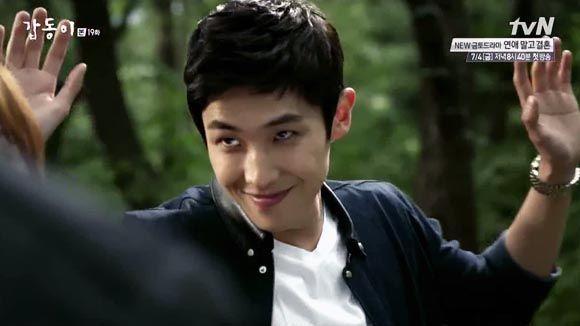
We’re one episode shy of the finale, which means the loose ends should be coming together and tightening up as we address the last few questions that still linger about our killer’s motivations. Well, the operative word here is should, but I can’t say that we exactly get there with this hour. What it does do, as the show has been doing all along, is put in some strong, charged acting displays that grip me in a way that the writing surely doesn’t. Because while I enjoy watching the performances unfold, I’m still confused.
SONG OF THE DAY
Oh Hee-jung – “부셔 (Break)” [ Download ]
Audio clip: Adobe Flash Player (version 9 or above) is required to play this audio clip. Download the latest version here. You also need to have JavaScript enabled in your browser.
EPISODE 19 RECAP
Mu-yeom goads Section Chief Cha to show his true colors and reveal his Gap-dong side. He slowly reaches for the gun he’s carrying and prods Cha, wanting him to react. Chief Cha clocks the security cameras in the building, which suggests to me that what he does next is part of his plan and not an uncontrollable impulse: He leaps at Mu-yeom, grabs the gun, and levels it at him.
We’d seen Officer Young-ae leaving with a gun hidden in her towel, and she’s been waiting around the corner, ready to act. She lines up Cha in her sights, and shots ring out. Bang!
Both men go down. Young-ae has shot Cha in the shoulder, while Cha shot Mu-yeom in his shoulder.
The wounds are nonfatal, though painful. To Cha’s surprise, Mu-yeom doesn’t hand him over to the cops at this point, but instead has him cuffed to the passenger’s seat of his car and then takes him for a drive. Hyung-nyun is reluctant to let them go off alone, but Mu-yeom is determined and got a plan in mind. I can’t vouch for it being a reasonable plan, but I don’t think anybody’s acting reasonable around these parts anymore, if ever.
As he drives, Mu-yeom explains about the monk’s advice not to be a hero, since in practice there’s little difference between a hero and a psychopath. “But I must want to be a hero,” he says. “A hero who captures Gap-dong.”
Chief Cha is back to his nicer demeanor, urging Mu-yeom not to be a crazy person and insisting that what he wants Cha to confess to—more undiscovered murders—doesn’t exist. Mu-yeom doesn’t even have a specific destination in mind, but is determined to get Cha to give up his secrets, even if he has to push them both to the brink to get it.
Mu-yeom’s vision starts to blur and his head gets dizzy from the blood loss, but he ignores Cha’s worried pleas to cut it out and continues onward. The car starts to swerve dangerously, but even then Mu-yeom doesn’t let up, demanding to know where more undiscovered victims are buried. He calls it the four-leaf clover, having seen a pattern in the Eiffel Tower photo, and orders him to lead him there. He hits the gas, ready to play chicken with their lives until Cha is ready to spill.
Maria and Chul-gon receive word of Mu-yeom’s rogue activities, and Maria decides she has to do something too. Meanwhile, Tae-oh methodically blows up a balloon while waiting for Maria to show. A tearful Ji-wool, tied to a tree, watches fearfully.
Tae-oh drops his balloon and decides that Maria isn’t coming after all, and takes out a dagger. Ji-wool asks if he had this planned from the start, and weather he agreed to her lessons as a trap. He replies yes, looking bored and expressionless all the while.
But when Ji-wool says she came along with him to confirm whether he was able to change his nature, a different look crosses his face. Something upsetting, intense. He pulls out a fresh balloon and agrees to wait just a little longer for Maria.
Mu-yeom fades fast, just moments away from passing out at the wheel. Even so, Cha insists there are no other murders, and Mu-yeom drives on, barely registering where they’re heading. He loses control of the car and swerves off the road, onto a sidewalk, and into a wall. Craaaaash.
Even now Mu-yeom remains steely, saying his path to the afterlife won’t be lonely since he’ll drag Cha with him. Chief Cha is badly shaken, on the other hand, and names his secret burial spot.
Tae-oh’s second-chance balloon pops, and he reaches for the dagger again… which is when Maria shows up.
Maria tells him to let Ji-wool go, and Tae-oh agrees: “I’d better, if I want to make you play rock-scissors-paper.” Ah, so this was a trap to kill both ladies, then. I can’t imagine how Chief Cha convinced him that killing two more women would somehow be Tae-oh’s ticket to freedom, but I suppose that’s not the point.
Cha directs Mu-yeom to a grassy spot in a secluded location, and Mu-yeom orders him to start digging. The rest of the police arrive on the scene, where the remains of a woman’s body are uncovered.
In flashback, we see a scene from as recently as three years ago, when Chief Cha had buried the victim here. He’d taken photographs of the field, focusing on the four-leaf clovers growing near the body. We’ve seen him taking photos of foliage over the course of this drama, and now we understand why. (At least theoretically. This point is super unclear in execution, and required lots of rewinding and conclusion-leaping.)
Tae-oh forces the ladies to kneel facing them, outlining the rules of the game they are to play: In the original ninth murder, Maria and her friend had both played the same hand over and over (rock), afraid of breaking the pattern. Maria had unwittingly changed her hand to the winning hand (paper), which resulted in her friend’s death.
Using the past as his template, Tae-oh tells them to act accordingly, eager to see how the game plays out here. He grows increasingly worked up as he calls the game and they keep their fists still, unchanging.
The police appear to be able to see Tae-oh’s actions from a helicam hovering over the woods, but they’re not at the scene yet. Tae-oh gets angry with the ladies for not playing along with his re-enaction, and proposes a twist in the plan: What if the winner gets to live?
Ji-wool sobs at him to stop. Tae-oh replies, “No. Why would I quit something so fun?”
So when he calls the next game, Maria looks intent on doing something, and she changes her hand—not to paper, to save herself, but to scissors, to sacrifice herself.
Only, at that very moment a terrified Ji-wool changes her hand too—to paper. And the hand that would have saved her life has now sealed her death.
Tae-oh snickers in amusement, but wonders why Maria would give herself up for someone she’s not even related to. Ji-wool sobs her apology, but Maria tells her she understands that Ji-wool didn’t intend to react that way—after all, Maria had reacted the same way. “I just felt like something had to change,” Maria recalls, “because he said he’d kill us if we kept playing the same thing.”
Tae-oh wonders idly why it’s so important to explain one’s reasoning in the face of imminent death, but Maria declares forcefully, “It’s important. Because nobody is going to die this time.”
Then Maria asks a favor of Tae-oh, to pretend she lost the game. She urges him to hurry and finish the ninth murder before the police arrive, and this makes Tae-oh balk. He says he needs to think this over.
Mu-yeom is treated at the hospital, where he overhears the doctors worrying about the bullet in his head. The hematoma is worse than last time, which makes surgery risky.
Cha is brought in for his injuries as well. Having sent his wife abroad, he has nobody to sign as his guarantor, so Mu-yeom does so at his request. Cha tells him that he was fooled by Tae-oh, who had given him the tip to shoot him in the guise of Gap-dong, and says that he’d given a tip in return regarding Tae-oh’s so-called freedom. Cha also advises Mu-yeom to kill Tae-oh when he gets the chance, because if left to live, the slippery bastard will find a way out.
Ji-wool urges Tae-oh to stop now, saying that he still has a chance to save himself. Despite his statement that this is fun, she says it doesn’t seem like he’s enjoying himself.
Chul-gon and his team observe these goings-on from their camera above, and I seriously can’t understand why nobody’s interfering. What are you waiting for?
Chul-gon speaks with Profiler Han and explains that they were fooled into thinking Cha had stopped murdering, when in fact he’d continued. And if Cha had persuaded Tae-oh to believe that he had stopped himself, well, that’s a misconception Tae-oh’s operating under.
Tae-oh tells Maria that he knows why she lost on purpose—to make sure he died. He’d realized that the police would be coming soon after she arrived, and that he might end up shot to death today. Looking like a hurt child, he asks, “But why have you never once believed in me?” Said the proud serial killer.
He asks if Maria has ever felt compassion for him, “like that stupid girl,” indicating Ji-wool. She apologizes but says, “You’re Gap-dong’s copycat. If I felt compassion for you, what happens to the people who died at your hand? You haven’t only killed your victims—you’ve also ruined the lives of their families and their loved ones. When you kill a person, suffering is felt by hundreds of others.”
Confused, Tae-oh asks what she thinks he should do. What happened to the girl Jae-hee who lived at the expense of her friend?
Maria answers that Kim Jae-hee died the moment her friend did. It would be abnormal to hope for a normal life after that—this is what it means to be a victim, and to be hurt. She tells him to cut out the ridiculous defense tactics, and that she won’t let him off the hook.
Noting the helicam watching from above, Tae-oh asks Maria for a favor: “If, when I die…” We don’t hear the rest of that.
Mu-yeom rejoins his colleagues, who are observing the camera of Tae-oh’s encounter. He wonders what Cha meant in warning them to kill Tae-oh, and what Tae-oh could have been thinking when he pretended to do Cha’s bidding (to kill Maria) and then acted on his own agenda.
The sound of Gap-dong’s whistle cuts in, and Tae-oh guesses Mu-yeom is on his way. He tells Maria that there’s another reason Gap-dong didn’t kill her twenty years ago—something neither she nor we are aware of. But he doesn’t divulge what he knows, leaving her curiosity piqued.
When Mu-yeom arrives, Tae-oh starts to pull Ji-wool away, but is ordered to stop. He surrenders readily, a big grin on his face.
Chul-gon visits Cha and guesses that he was trying to use his copycat to eliminate his sole witness. But Tae-oh turned on Cha, who concedes that he lost. He asks, “Did it feel good to win?”
Chul-gon asks if he feels anything akin to conscience. Cha replies, “Cha Do-hyuk tells me to try to live as a human. Gap-dong tells me that living as a beast is more fun.”
While bringing Tae-oh in to the station, Mu-yeom guesses at his reason for not killing today: to provide more reason for his insanity plea. Tae-oh just laughs.
And yes, Tae-oh does have more tricks up his sleeve, the latest being a matter of nationality. He’d held on to his dual citizenship (South Korean and American) because of his stake in the family corporation, but if he gives up his Korean citizenship, he can work the nationality issue in his favor. His lawyers bat around the idea of deporting him abroad, which would somewhat gratify the Korean citizens who’d rather be rid of him.
Ji-wool’s and Maria’s mothers hear that their daughters are safe, to their great relief. Ji-wool’s mother apologizes to Maria’s mother for her daughter’s part in recent events, saying that she’s too interfering. However, Maria’s mother consoles her, saying that she ought not blame the victims for being targeted.
That’s the same thing Maria points out to Ji-wool, telling her that because she was in the act of running away from home when Gap-dong got her, people used to whisper that she got what she deserved. She makes Ji-wool promise not to blame herself for trusting people, and admits that it’s still hard for her.
Later that night, Maria wonders to Mu-yeom what will become of Tae-oh, admitting that perhaps she is concerned about him after all. She starts to say that after this is all over… and how she was happy to have had him with her through the ordeal… But Mu-yeom doesn’t let her continue and pretends to be distracted by the baby.
In a flashback, we see that the monk had told him that when Mu-yeom was a teenager and not in his right mind after his father had died, doctors had said he only had fifteen more years to live. He has already surpassed that timeline, and therefore should consider his extra time a gift and live well. I’m guessing Mu-yeom doesn’t interpret that news in quite the same way, if he’s pushing Maria away because of it.
Chul-gon conducts the interrogation of Chief Cha, and speculates that there’s something about the case that Cha is keeping hidden. Referring to the bloodstained jacket Mu-yeom burned and kept secret, Chul-gon asks, “What’s your bloodstained jacket?”
Chief Cha just says that he was born a psychopath, and has nothing further to say. “You people all have red blood, and I have beast’s blood that’s blue. Let’s just think of it in that simple way.”
Chul-gon reminds him of Mu-yeom’s theory that Cha used the signature knots to exaggerate his psychopath image, and guesses that there’s more to the story of his first victim, Mi-ja, and her father. Cha tells him to end this easily—a cop’s job is to find evidence for his case, and now they have it.
Tae-oh is brought before the noose, trembling and shedding tears in fear. He starts hyperventilating when the sack is placed over his head, and the noose slung around his neck. The floor drops from under his feet—and he jerks awake. A nightmare. Shaking on the floor of his cell, he huddles in the fetal position and gasps, “Cold… I’m so cold…”
He wraps himself in a blanket but continues to shiver uncontrollably, muttering that he has to survive. There’s an irony to the wording, because saying “I have to live no matter what” is said, in literal terms, as “I have to live, even if it kills me.”
When he meets with his lawyers, he’s confident and assured once again, showing them the fishing blog with the conversation between him and Cha. He states his new approach: He was manipulated by the original Gap-dong. Cha forced him to commit the ninth murder, and Tae-oh had no choice but to comply.
Mu-yeom visits with Tae-oh and starts to mention Maria, but Tae-oh says he doesn’t want her pity. He asks why Mu-yeom pities him, pointing out that he always regards him with the gaze of someone who thinks his kid brother has gone astray. He guesses that Mu-yeom thinks that he could have become like Tae-oh himself: “I figured it out with the Russian Roulette—that you were lucky to stay on that side, as a person.”
Ji-wool falls ill, and her mother tends to her. In so doing she stumbles across the webtoon Ji-wool has been working on, which incorporates some of the latest bits we’ve learned. This one involves two youngsters killing a man, which suggests that Cha and his friend Mi-ja had killed her father together.
As Cha sits in jail, he thinks back to 1993, on the day of his first Gap-dong murder. He’d been pacing outside a store, and in its window display was a copy of Crime and Punishment.
The day of Cha’s trial arrives. Mu-yeom is there early, and approaches when Cha is escorted to his seat. He asks how it feels to sit there, and when Cha says it’s uncomfortable, Mu-yeom replies that it’s at least good that Cha can feel enough to feel discomfort. Only to have Cha clarify that he means the seat is literally poking him, not that he feels any sense of conscience.
When Cha is given a chance to make his statement, he only has one thing to say: “All of you who stood by and watched for the past twenty years—do you have any right to judge me?” He chuckles to himself.
Tae-oh huddles to himself in his cell, whispering, “If only I could live…”
In the shortest serial murderer trial in the history of ever, the verdict is reached and about to be announced. Before it can be declared, Cha leaps up form his chair and begs the judge for mercy, blubbering that he wants to live.
Mu-yeom and Maria watch in confusion—what’s he up to?
COMMENTS
This is another tactic, I’m sure, designed to elicit sympathy. I don’t know what Cha intends to argue in his defense, because at this point the only question can be of what kind of punishment he is given, isn’t it? It’s the same as Tae-oh’s situation, where I can’t imagine any scenario where the criminals earn any sort of real freedom; it must be a bid for a life sentence rather than death.
What I’m unclear on is what actually spurred Cha to this point, because I think we’re meant to see him as having reached that point of fearing death, or at least desiring to live, in the way that Tae-oh did several weeks ago. Was it the car crash? That actually seems pretty weak to me, although I suppose there’s a symmetry in the way that it was Mu-yeom in the driver’s seat with both psychopaths. But why would Cha break and agree to show him to the burial site, believing that this disclosure would somehow strike a deal with the cops to let him off easy? If anything it’s the nail in the coffin they needed to secure his conviction, and without it they would have been in a much weaker position. This drama’s logic, it hurts my head sometimes.
I do try to give it the benefit of the doubt in most instances because it’s clear that the writing is mindful of true crime cases, and has mostly used those examples judiciously as reference points. Now that we’re so close to the end, though, I think I can stop hanging on hope that there’s a better answer to some of my questions and just conclude that in some aspects, this drama isn’t going to deliver. And the reliance on American serial killer cases is starting to feel lazy, like you went to Wikipedia and cobbled together a plot based on famous cases, but forgot the part where these characters have to have motivations that read as credible. They don’t have to make sense in straightforward way given that we’re dealing with psychopaths, but internal logic is still important, and I’m left frustrated trying to make those ends meet in my mind. It’s like trying to tie together two ends of string, only they ends just barely touch and you can’t actually manage any tying.
I continue to find Tae-oh vastly more interesting than Cha, and while that’s good on one hand, I do think it’s indicative of the drama having dropped the ball with their titular character. I’d even posit that the mystique of Gap-dong was way more intriguing than the actuality of Gap-dong, and this villain is falling rather flat for me. Tae-oh, at least, is a character who lives in the present, so we get to come along for the ride as he struggles with his emotions (or non-emotions, perhaps).
I do think the drama is heading toward a finale twist regarding the first murder, although since I already know about Into the White Night, I’m not thinking it’ll be much of a surprise. Perhaps he and Mi-ja plotted together to kill her terrible father and somehow that went awry and Mi-ja died too. Or maybe she knew about it and was going to spill, and he had to silence her? In any case, it seems like that first case points to a Cha Do-hyuk who was still human, before the beast was stirred, and maybe that will be the little glimpse of reclamation we get for his character. Redemption is far gone, of course, but understanding can be a worthy goal. Let’s just hope we actually get there with the finale.
RELATED POSTS
- Gap-dong: Episode 18
- Gap-dong: Episode 17
- Gap-dong: Episode 16
- Gap-dong: Episode 15
- Gap-dong: Episode 14
- Gap-dong: Episode 13
- Gap-dong: Episode 12
- Gap-dong: Episode 11
- Gap-dong: Episode 10
- Gap-dong: Episode 9
- Gap-dong: Episode 8
- Gap-dong: Episode 7
- Gap-dong: Episode 6
- Gap-dong: Episode 5
- Gap-dong: Episode 4
- Gap-dong: Episode 3
- Gap-dong: Episode 2
- Gap-dong: Episode 1
Tags: featured, Gap-dong, Kim Ji-won, Kim Min-jung, Lee Joon, Sung Dong-il, Yoon Sang-hyun
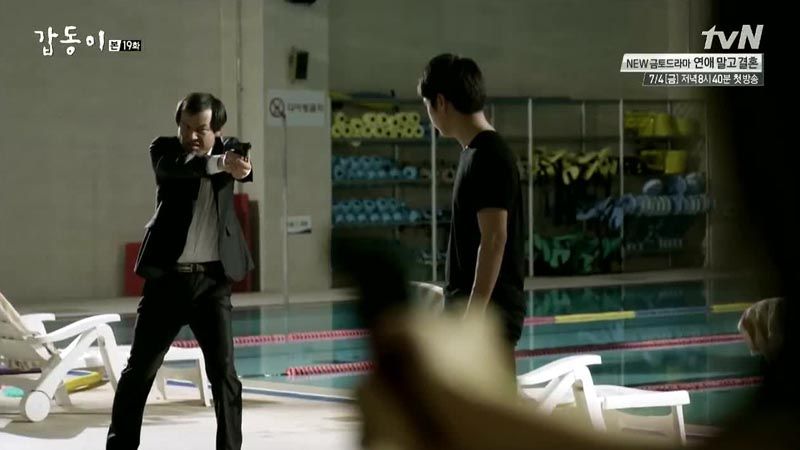
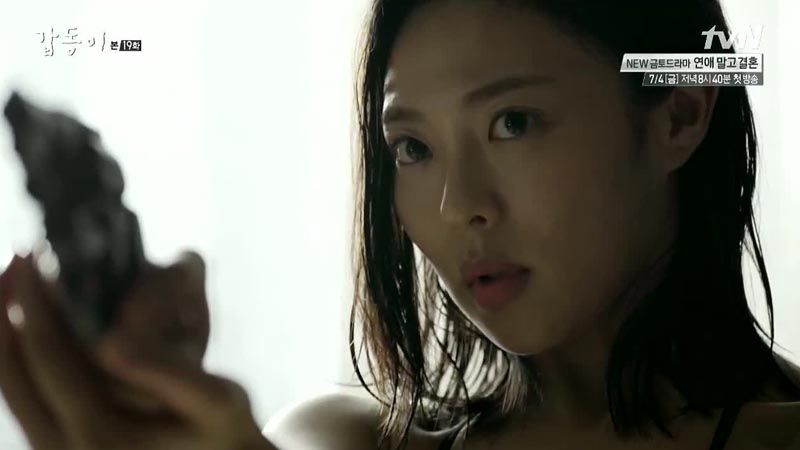
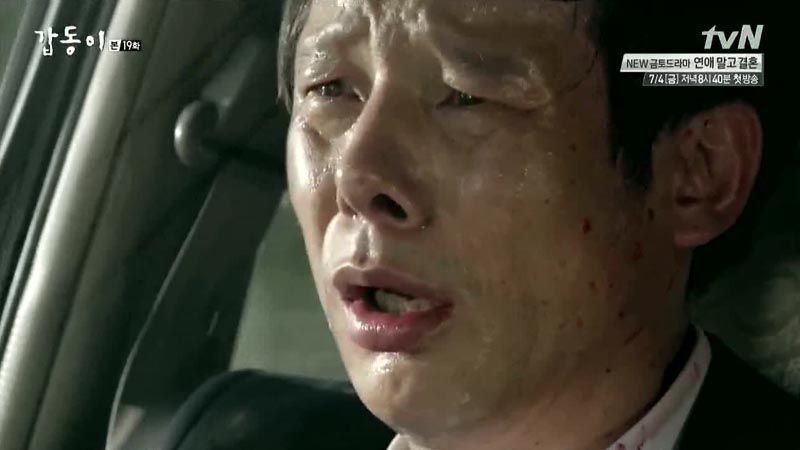
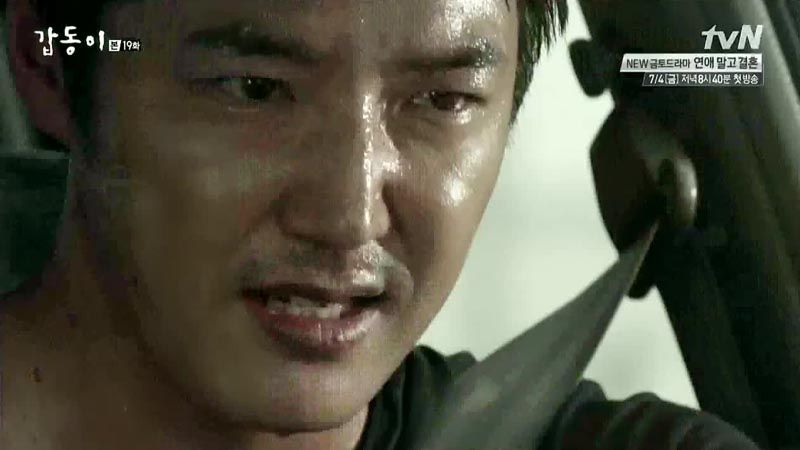
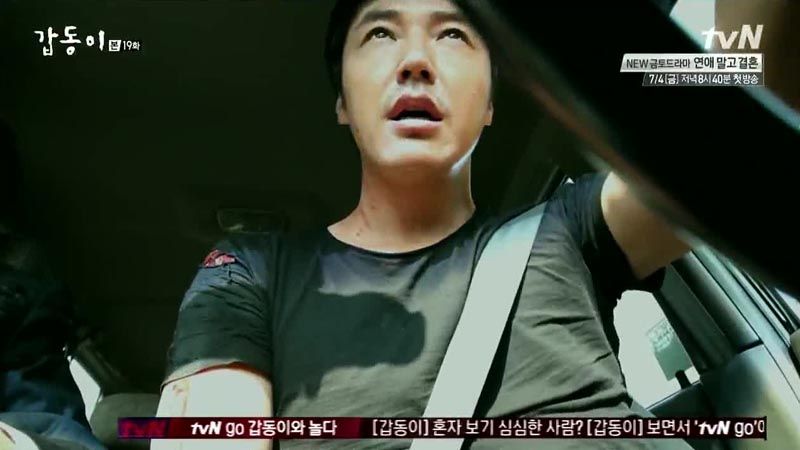
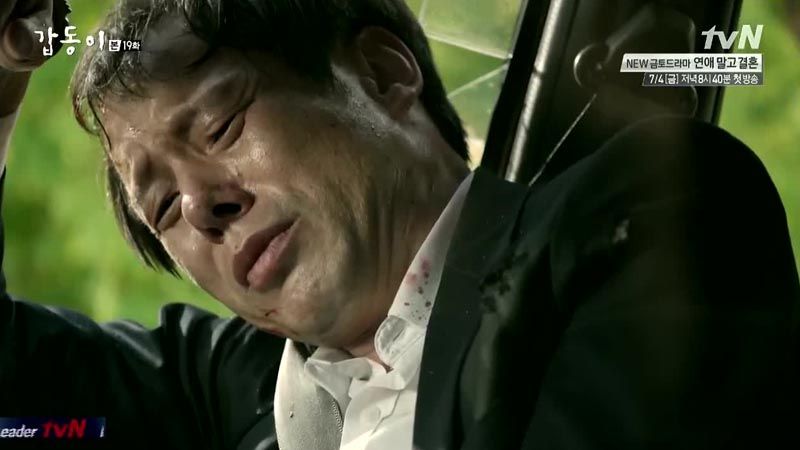
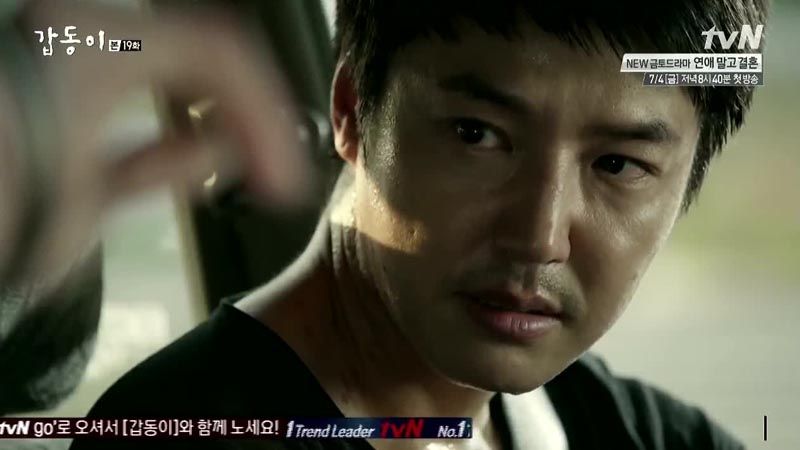

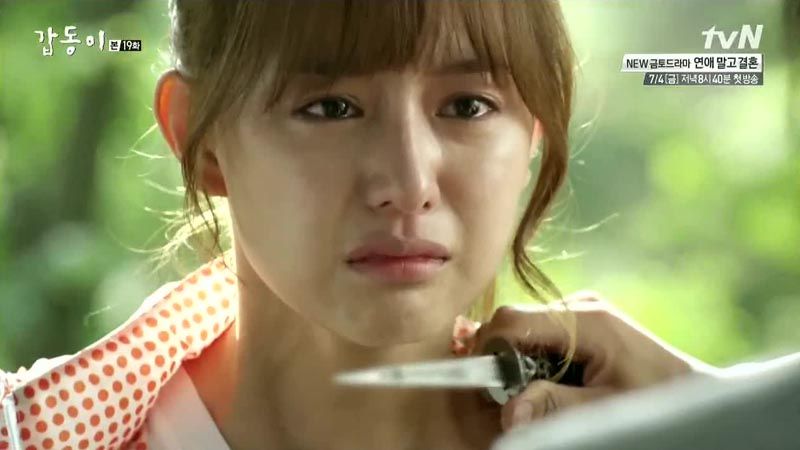
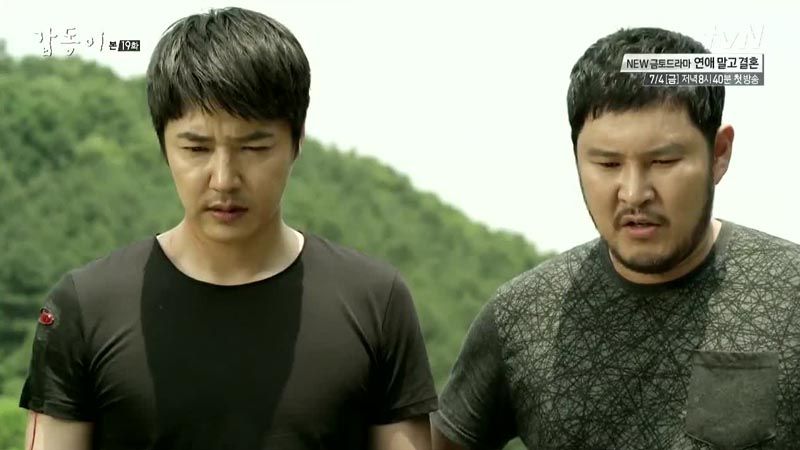
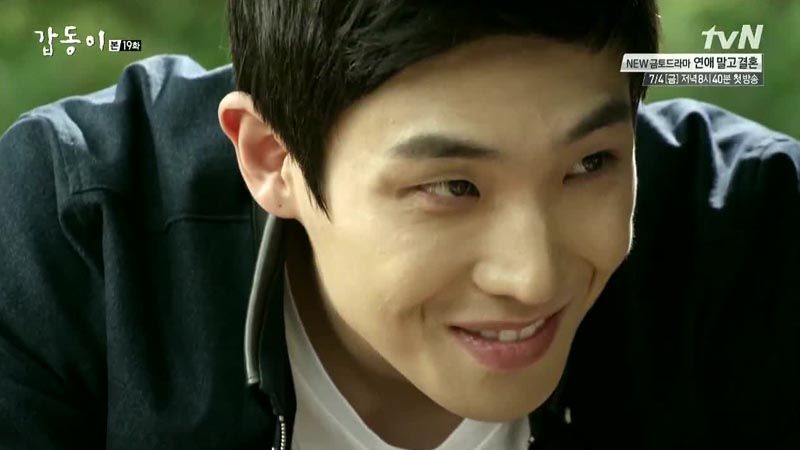
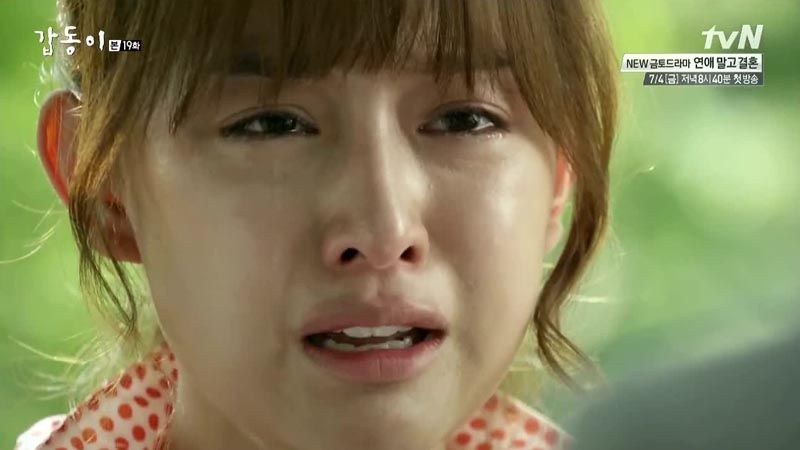
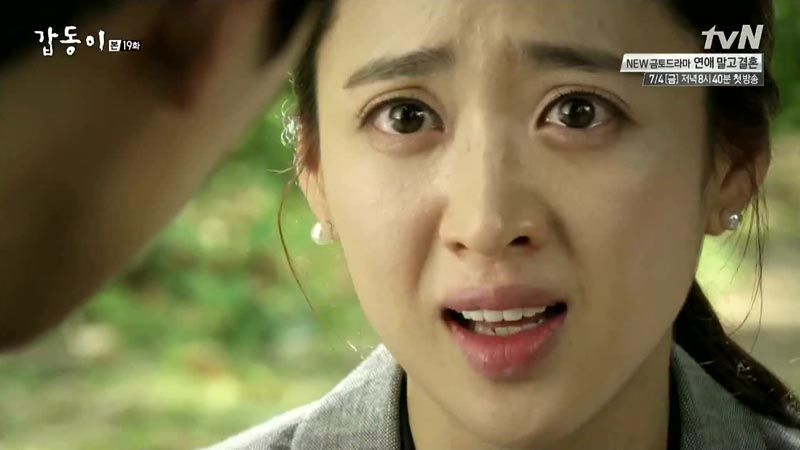
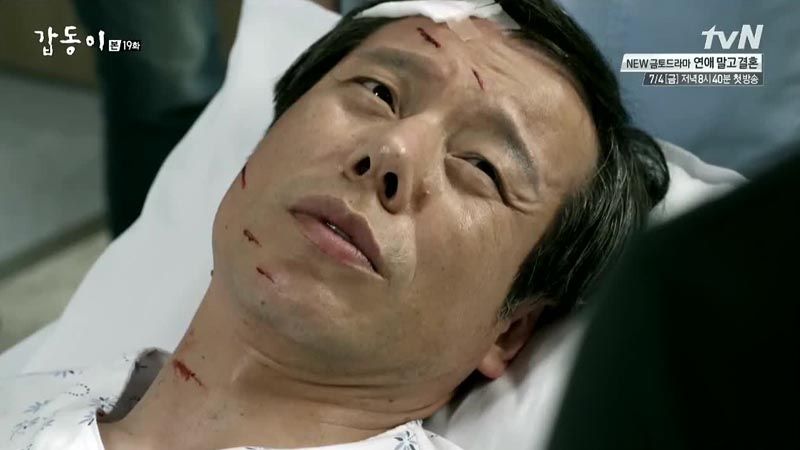
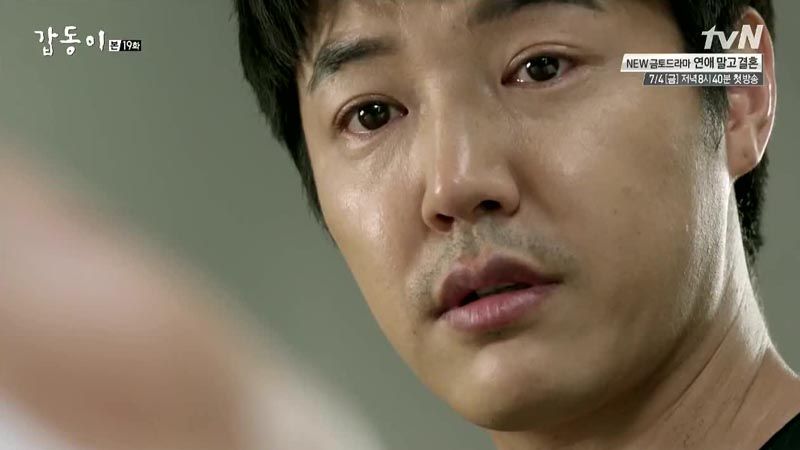
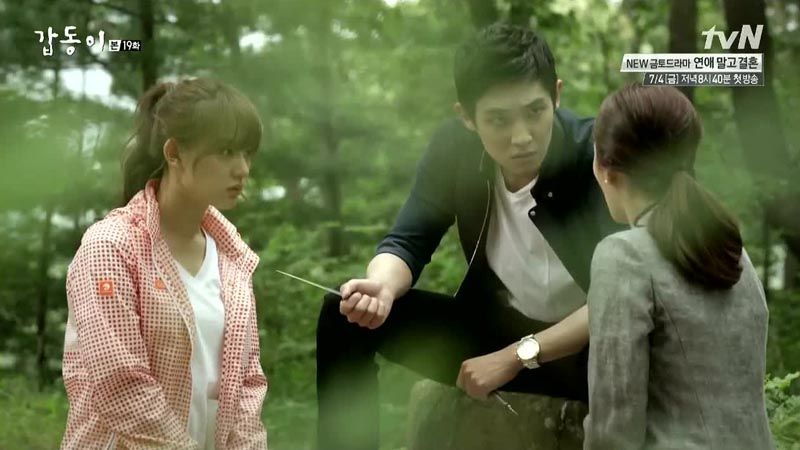
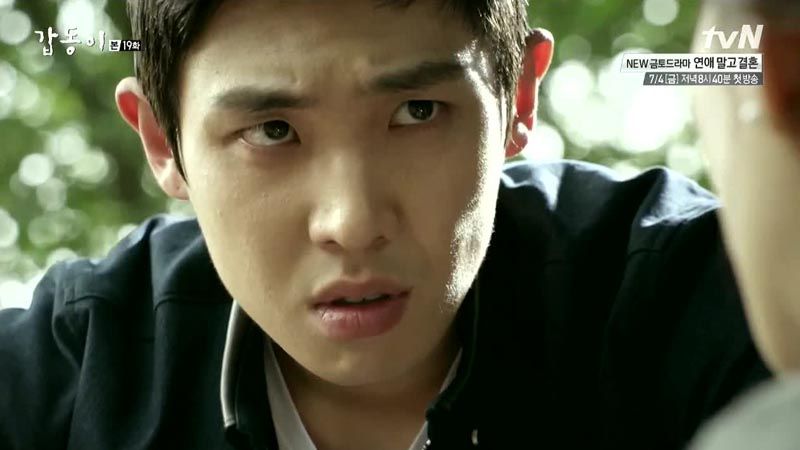
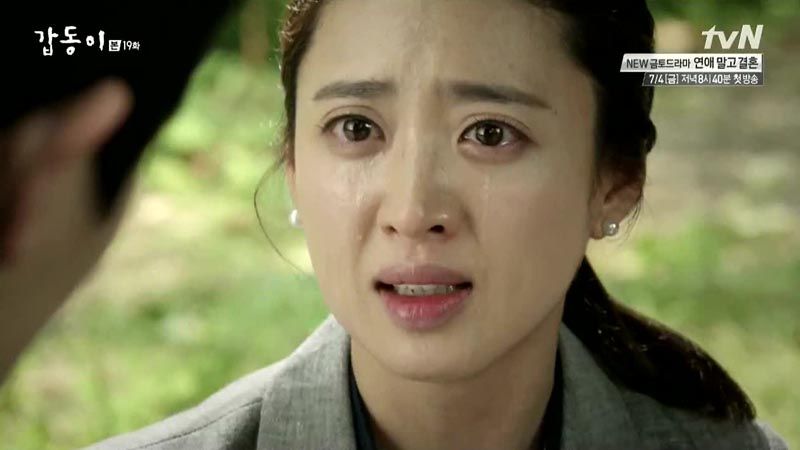
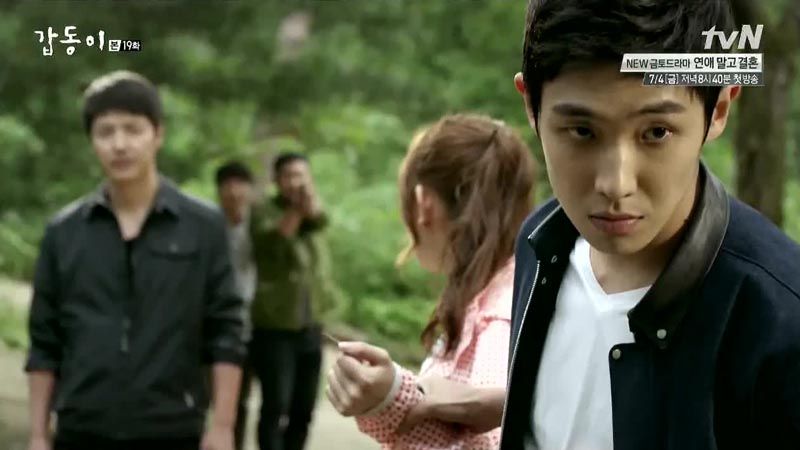

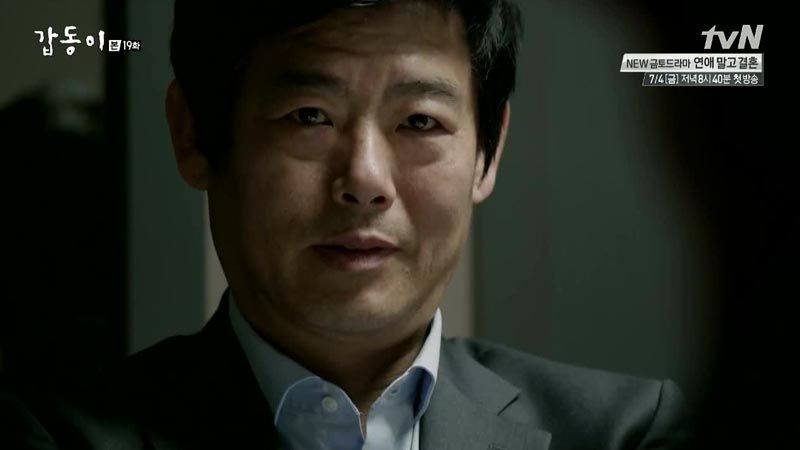
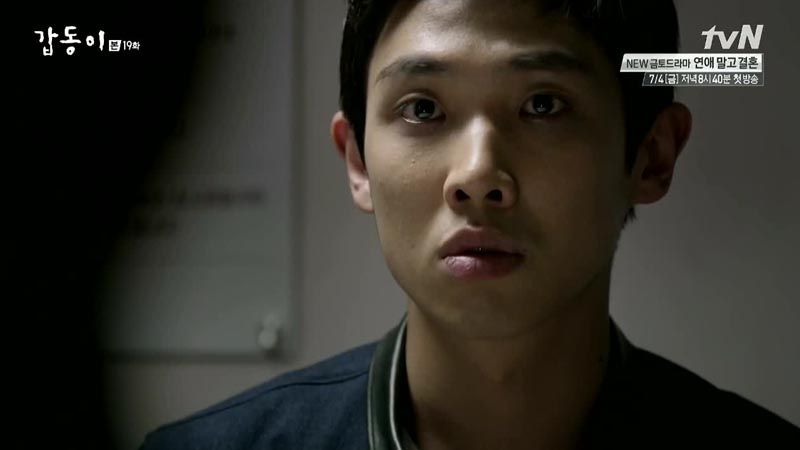
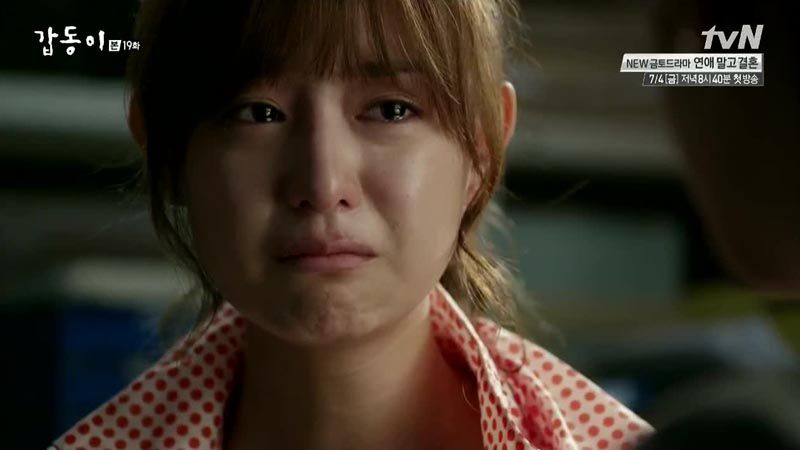
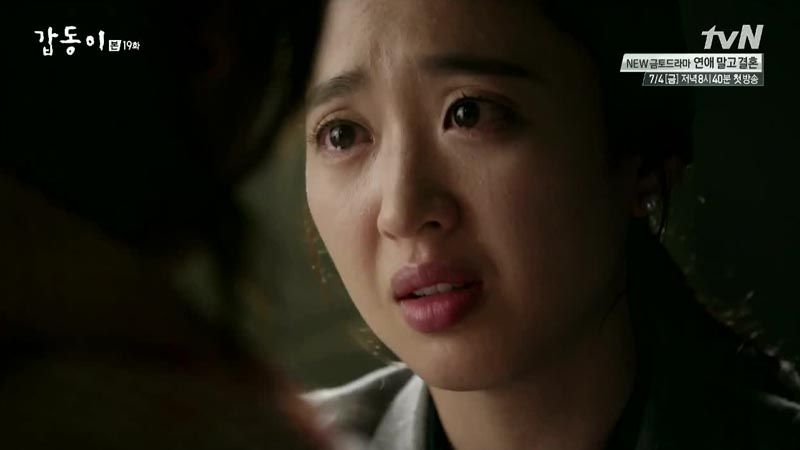
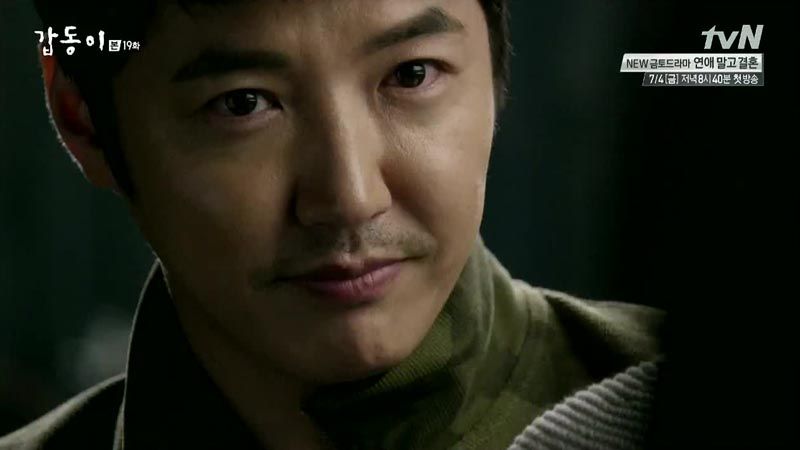
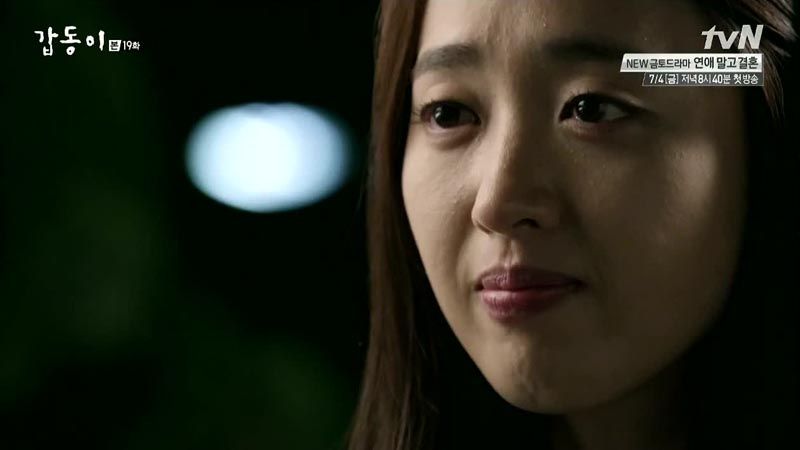
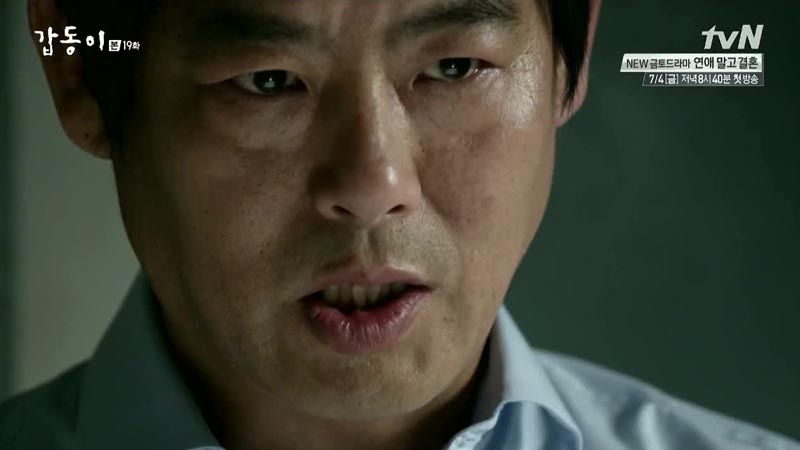
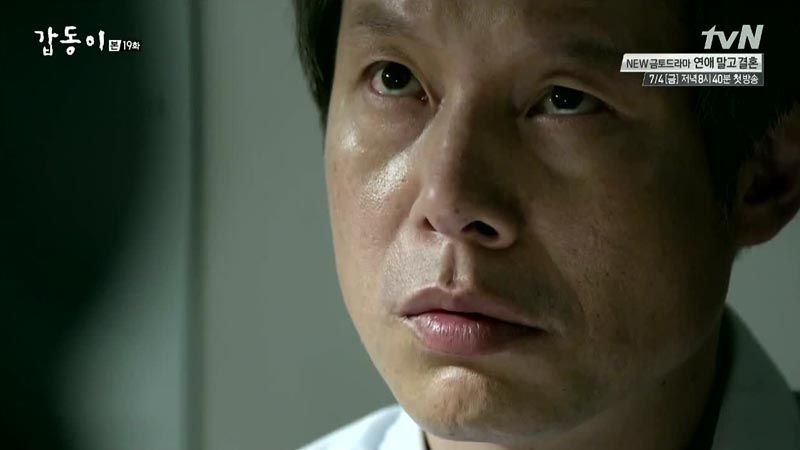
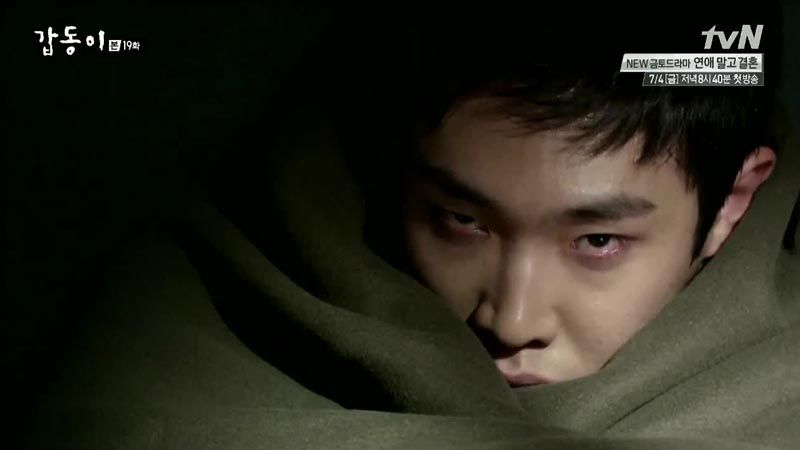
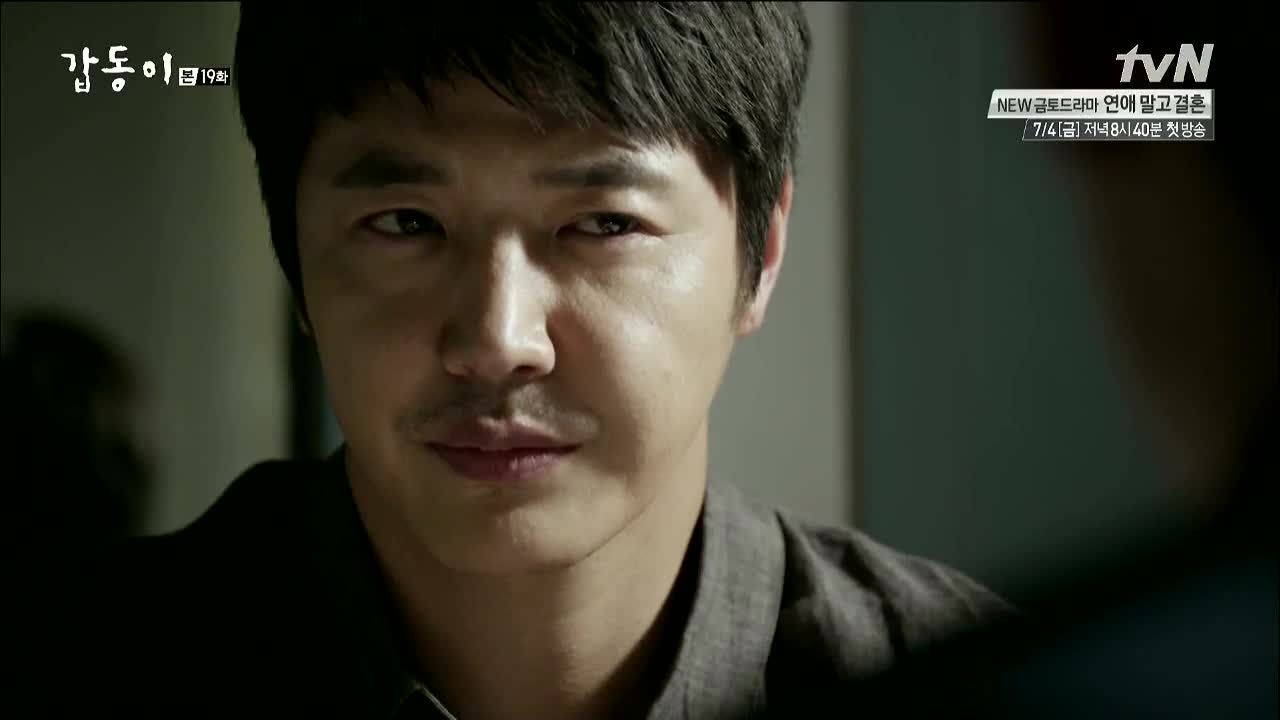
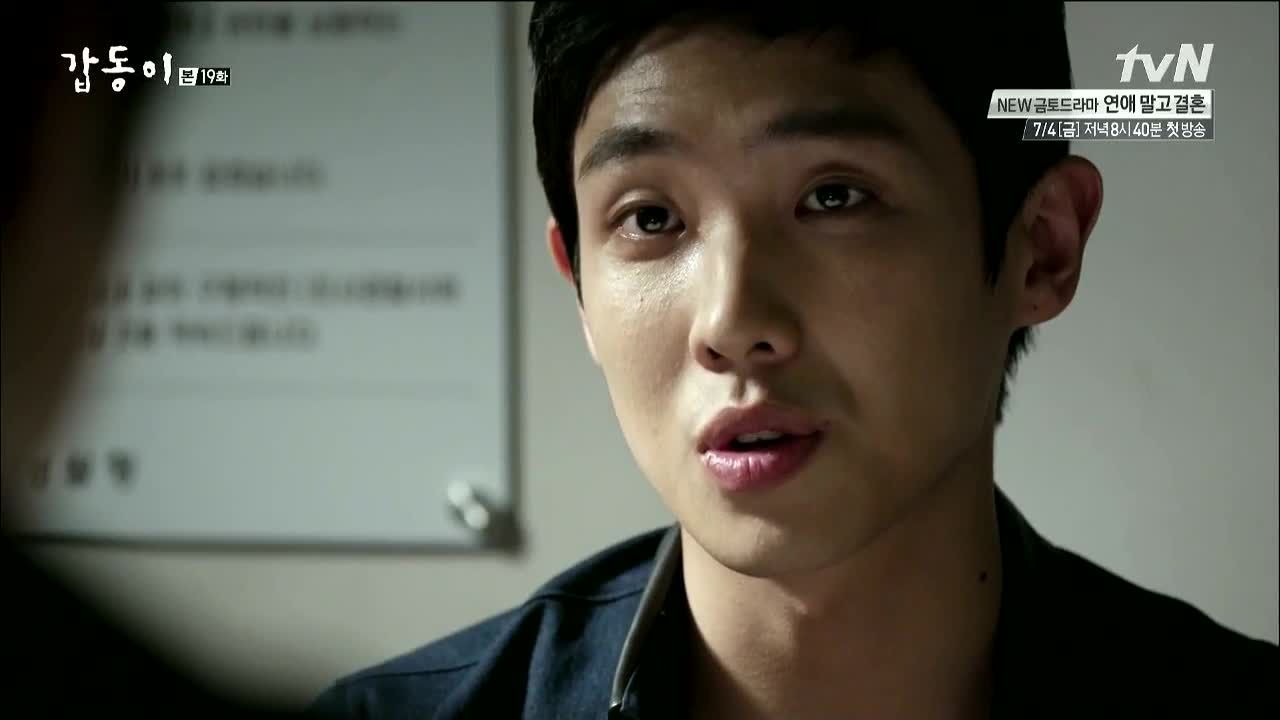
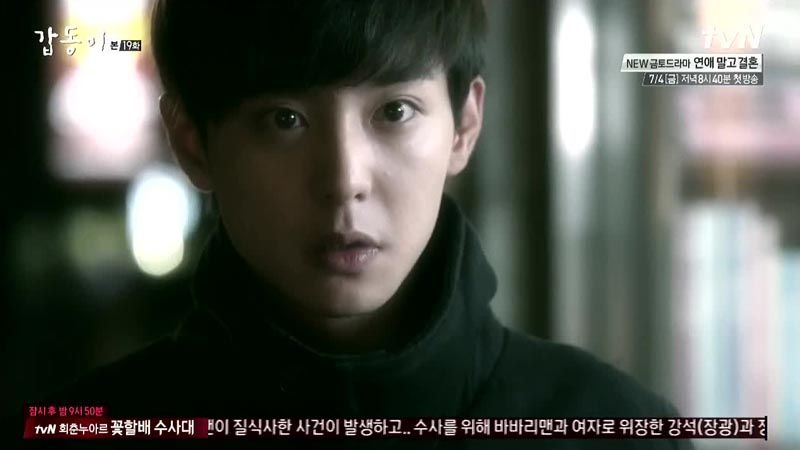
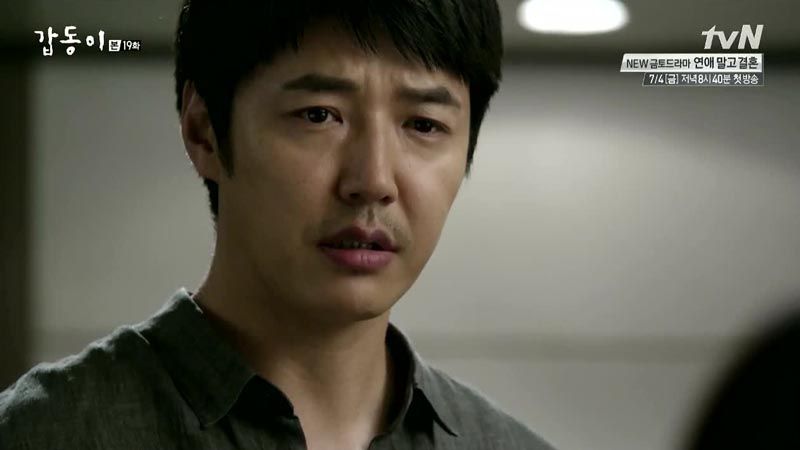
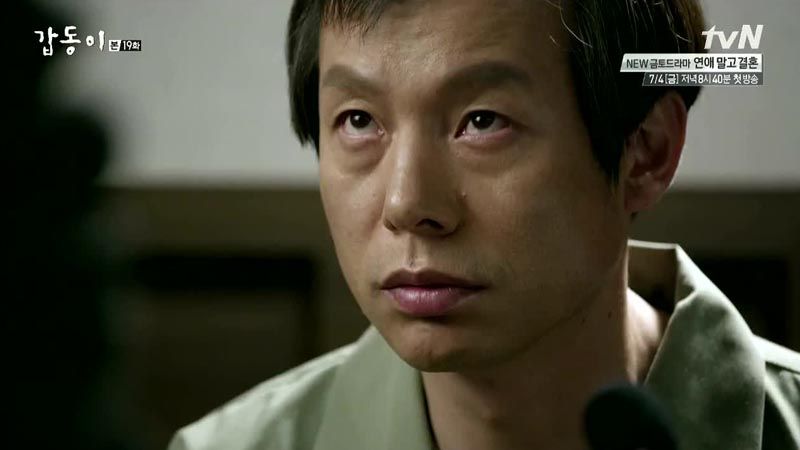
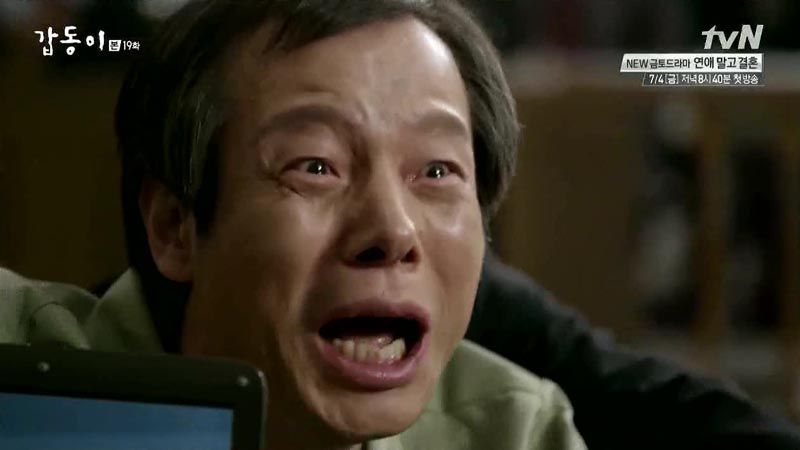
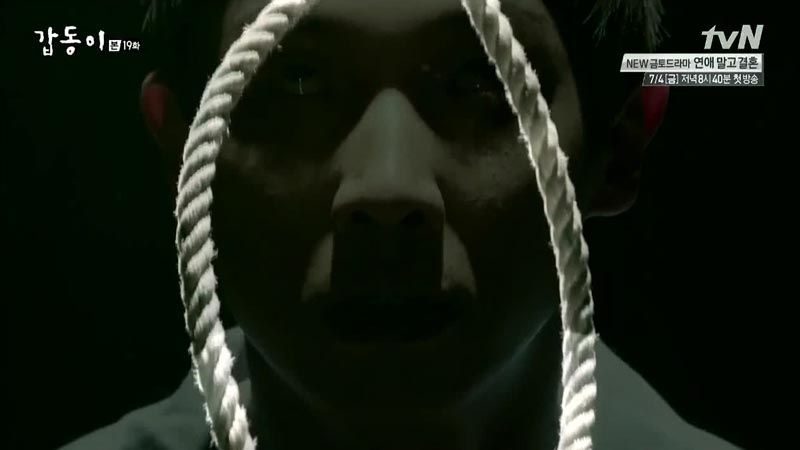
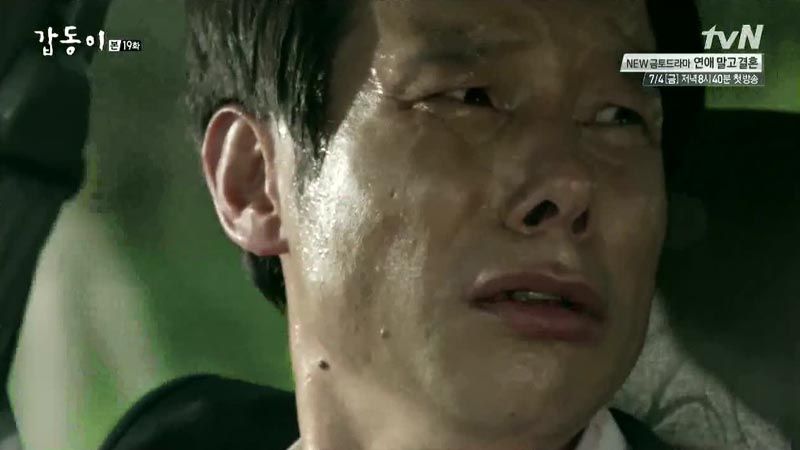
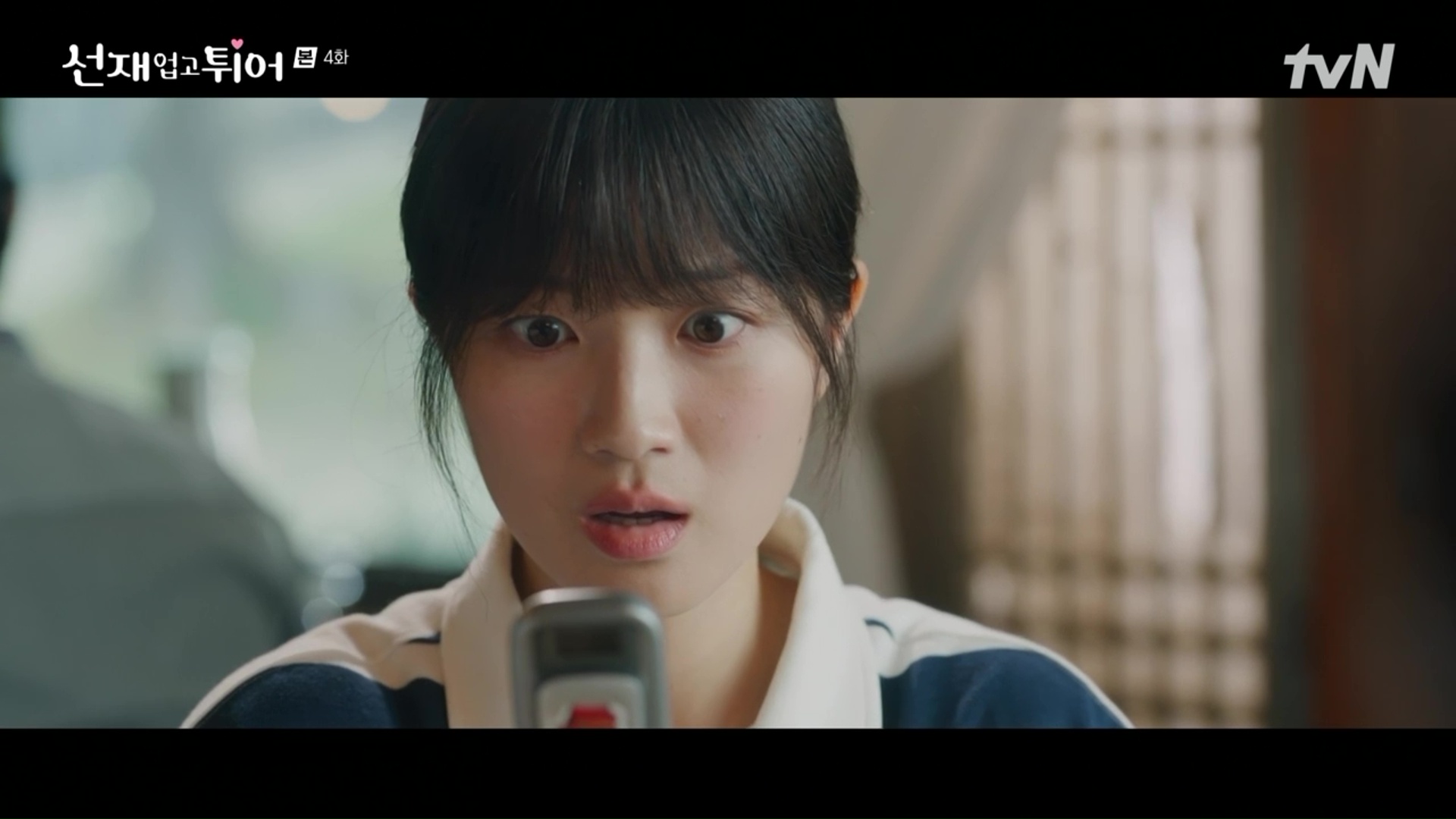
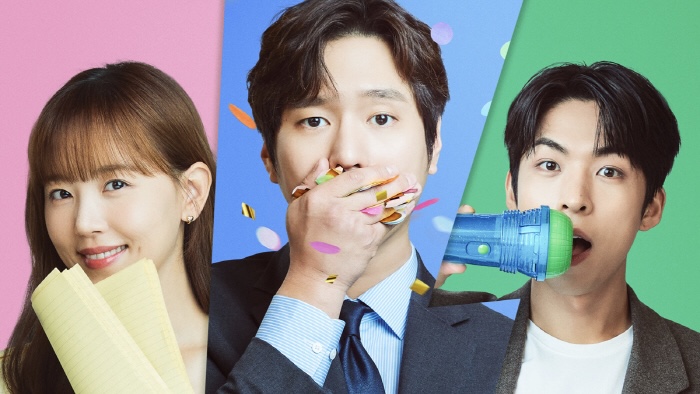
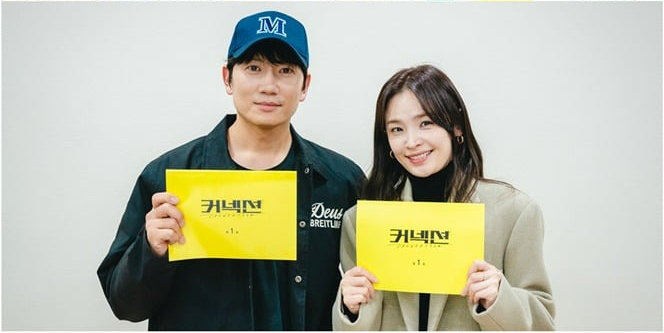
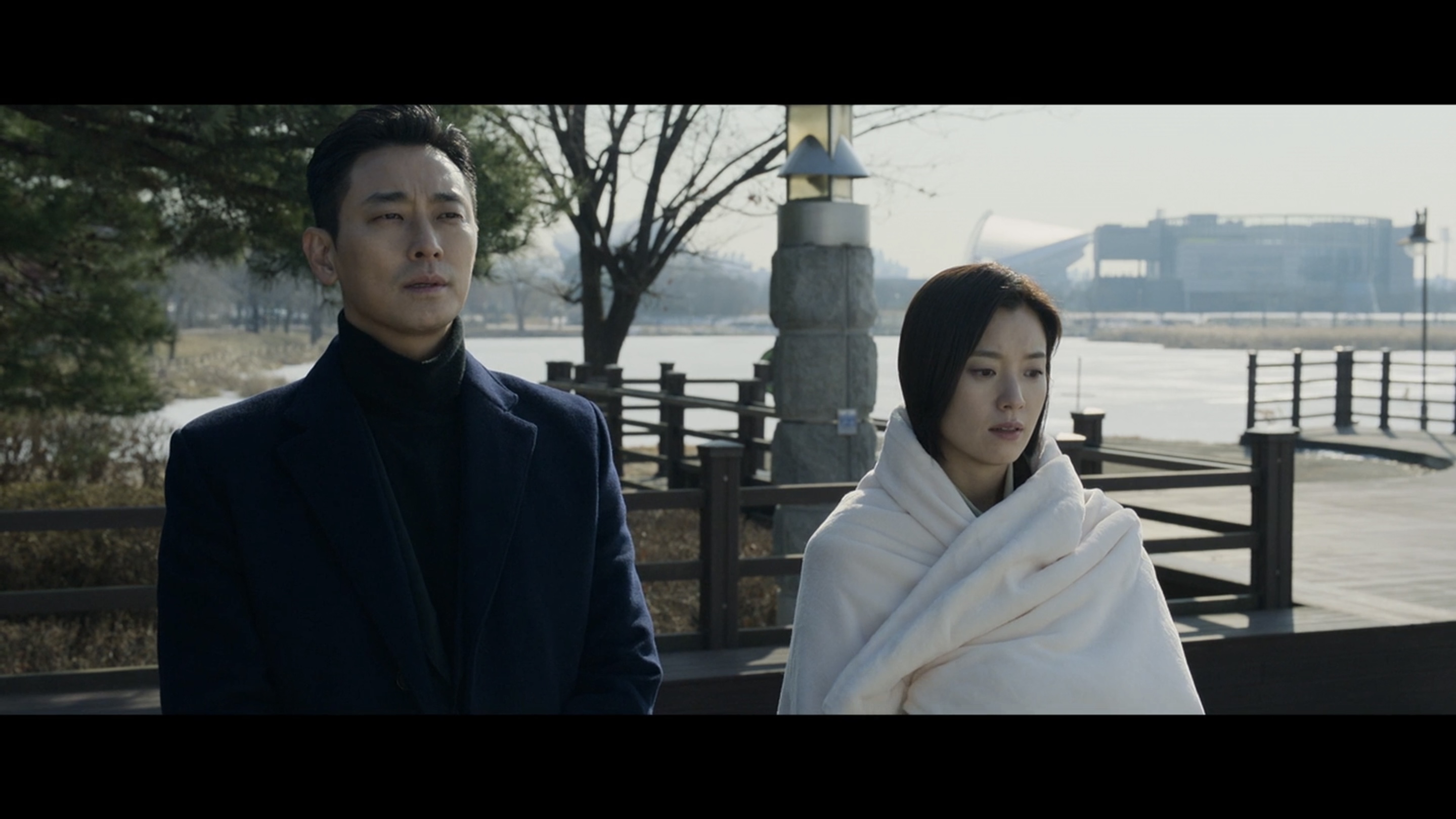
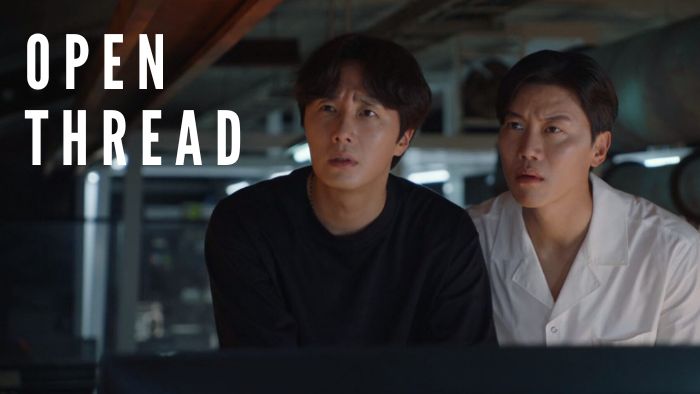
![[Cast Away] A psychometric marries his enemy to foil her plans](http://d263ao8qih4miy.cloudfront.net/wp-content/uploads/2023/09/castaway_header1.png)
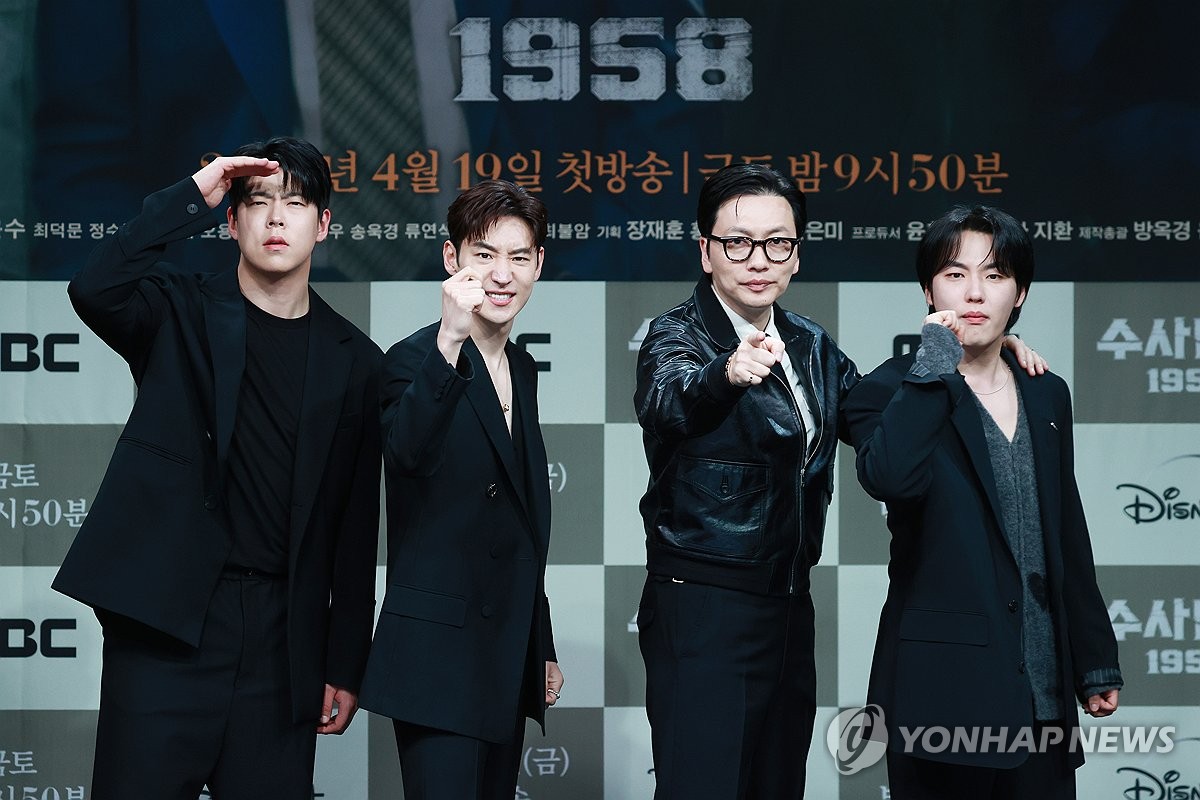
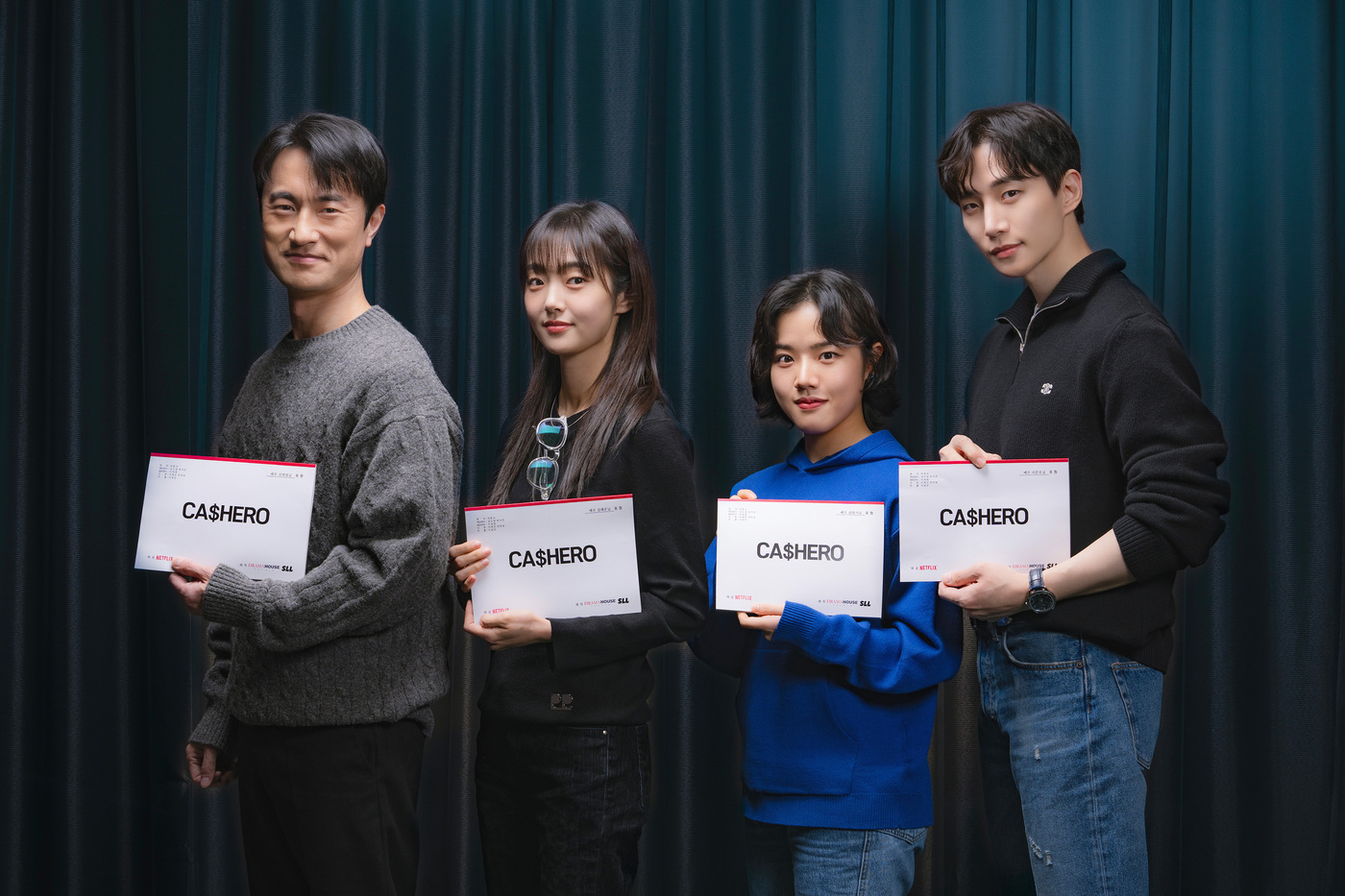
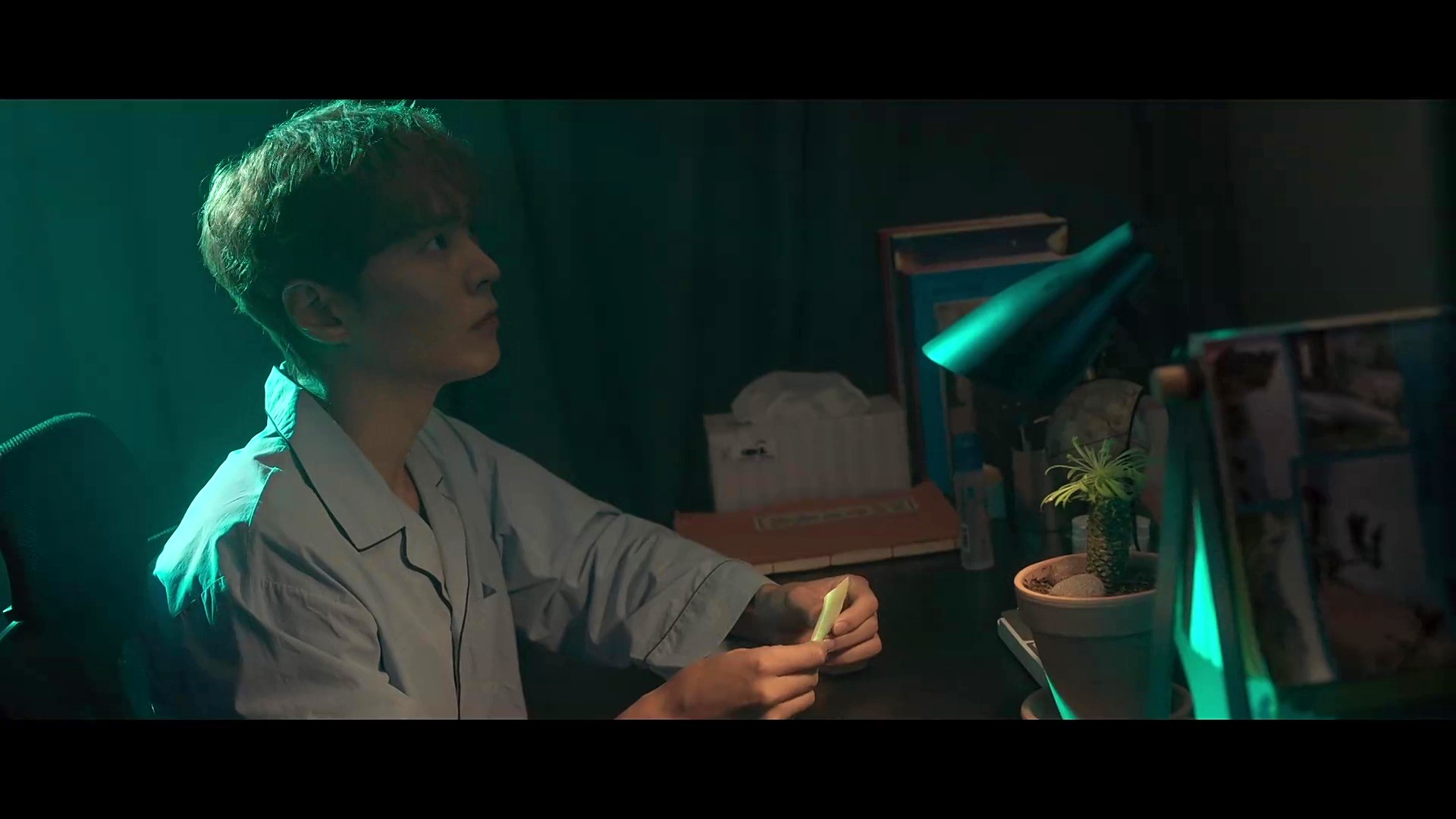
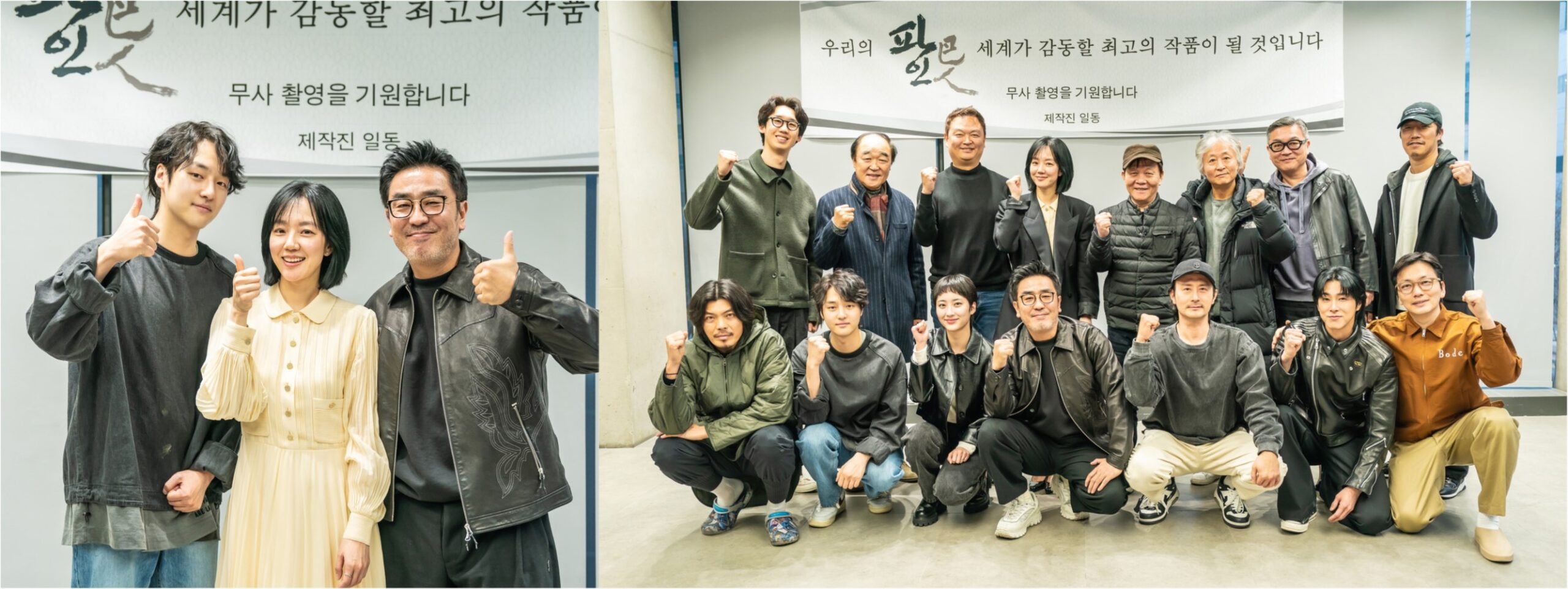
Required fields are marked *
Your email address will not be published. Required fields are marked *
1 Molly
June 21, 2014 at 12:21 AM
My God it's here! Thank you for the recap, Javabeans. Agreed with the strong, charged acting displays, although the story is not that easy to digest it keeps me hooked. To be honest I got stronger addiction from this show than I did from other crime-investigation-themed series. Can't believe today is last episode.. I know I will do rewatching marathon for the whole episodes soon after today.
Required fields are marked *
2 munjae
June 21, 2014 at 2:19 AM
Mu Yeom and the baby. Enough said. Thanks for the recap!
Required fields are marked *
CaroleMcDonnell
June 21, 2014 at 6:05 AM
yes!!!! Lots of male nurturing going on. And i can't think of another drama which would just have that symbolic subtext right there. It balanced the scene so well. Two birds with one stone. Love this writer.
Required fields are marked *
monda
June 21, 2014 at 8:47 AM
And the baby is really cute it said something but no voice. Was it mute? Anyway yes it was a cute scene!
Required fields are marked *
jomo143
December 2, 2014 at 6:14 PM
That baby was SOOOO cute!
Required fields are marked *
3 monda
June 21, 2014 at 3:10 AM
I find the rock-paper-scissors game session really amusing. At first I thought it might bore me but it didn't! In fact that's the part where I payed most intention and kept on replaying the scene. The balloon, the freely rotating and dangling dagger in Tae Oh's hand (I kept noticing how he did things like putting the girls hands together with the dagger in his hand), Tae Oh's impatience, the twisted result, the dialog, their expressions. It was a well made scene. I love it!!!
And I can't care less about Cha.
Required fields are marked *
aly
June 21, 2014 at 5:37 AM
You sure amusing is the word you're looking for because from what I saw that was one fucked up game
Required fields are marked *
monda
June 21, 2014 at 8:44 AM
Sorry maybe my selection of words was not accurate, English is not my mother tongue. What I mean instead of getting scared of the game result or being bored by the scene (as I always thought Tae Oh did not plan to kill any of the girls) it actually interesting that I even replayed several times to check smaller details in the scene.
Required fields are marked *
4 Lottebun
June 21, 2014 at 5:01 AM
How is this all going to end? Can't wait for the next episode...
What am I going to do when the drama ends???? :(
Required fields are marked *
5 cheekbones
June 21, 2014 at 5:11 AM
Actually, this drama has lost me several weeks ago. I simply gave up trying to understand it. I'm just enjoying Tae-oh right now.
Required fields are marked *
6 aly
June 21, 2014 at 5:34 AM
Yeah tae oh is much more interesting to me. And I think Dr Maria put my head straight. As a human being, you are mune to sympathy. And I have felt a tad for tae oh along the way. Maybe because he seems so lost . but she made such a point. If we feel for these sickos then what about their victims and their families. The lack of mercy they showed for those poor ladies when they pleaded for their life. The very basic thing we can do is to not let them cloud our judgment.
Ji wool sadly had to learn the hard way but I just wished we were able to see her growth a few eps back. Was it me or did it really feel like Mu yeom was reading from a script. His acting just felt kind of robotic. Maybe it always was and I just didn't notice. Anyway, looking forward to the next ep!!
Required fields are marked *
missDVM
June 21, 2014 at 6:43 AM
Ding Dong Ding!
Required fields are marked *
sooyoon
June 21, 2014 at 11:52 AM
I dont know what's so interesting about Tae Oh character. He has been predictable throughout the show. Just a typical attention-seeking spoiled brat, lacking love from mummy and daddy.
Required fields are marked *
Aly
June 21, 2014 at 1:41 PM
the fact that he actually wants to stop. he questions why he does what he does and wants to stop and seems to have this internal battle with himself. seeing him having that internal struggle is interesting to me because on one hand you want him to figure it out and stop but on the other hand you know that he's just bat shit crazy and no matter what he can never redeem himself. and he knows that too
Required fields are marked *
7 CaroleMcDonnell
June 21, 2014 at 6:03 AM
Ah this drama! The weird flawed execution of such a really "touching" (for lack of a better word) script.
I am so not going to ask why the cops just stood afar off watching Tae Oh menace the women. And if the women (or at least Dr Oh) knew cops were around nearby, why did they even have to stop doing "rock"? Their lives didn't seem to be that endangered. But even accepting that the women didn't know the cops were around, couldn't they have made a mutual eye-pact not to change from Rock? But all that said, this drama really does make the viewer question her own compassion and accusations.
Right now, am thinking Cha was probably sexually-molested by the first victim. Hence the mute (silenced?) other 5-year-old boy self he supposedly has. Let's say Cha had lived his life totally wounded and messed up because of the molestation ages ago. Then bingo! he sees and recognizes bullying molester from days gone by. Hey, might be true. Most serial killers are a mix of nurture and nature. Not every abused person grows up to be an abuser but yeah....the propensity is there.
Tae Oh wasn't abused but he suffered the emptiness of being too full (Yep, Affluenza) and grew up all entitled like a few of the other Big Bads we've been seeing on kdramas this season. Somehow nurture --cold mom (who is looking at profits while son is on trial) -- and his own emotional make-up created copycatter. After all, he wanted someone to look up to.
I did feel like a wuss for feeling sorry for Tae Oh and thinking, how sad he looked when he realized Maria would have continued being loving/maternal to him if he had not fallen into copycat-hood because of hero worship and Loser.
Gap Dong is one flawed drama but it is always psychologically interesting cause the writer is doing a lot of psychological exploration of forgiveness, "understanding-but-still-judging," guilt, compassion, identification, conscience, easy and hard judgements. That isn't done a lot in kdrama procedurals. It's really been like a journey where you really don't know where you're going. Although there are a few flat spots, you're still enjoying it.
Thanks for the recap.
Required fields are marked *
Marina
June 21, 2014 at 7:13 AM
@Carole
Going on a "journey" with this writer is like that silly Ji-wool girl following Tae Oh everywhere without using her brain.
Can Kdramas stop casually shipping their serial killers to America, please? It isn't that easy in real life and we have enough killers of our own. So thanks, but no, thanks.
Required fields are marked *
CaroleMcDonnell
June 21, 2014 at 8:28 AM
Every story is a journey. And we really are led around by writers in stories. They give us clues as to what the journey/story is about. And we either decide to step off or to continue. If one jumps off a story without giving it a chance, just because of a few weird spots, one is not being fair to the structure of the story or to the author who has chosen to tell the story in his own imperfect way.
Gap Dong has been interesting to me. Probably because many other dramas are like typical tours where we know all the stops and all the twists and turns. Gap Dong hasn't been like that. Other dramas would not explore certain areas along the bus journey, but Gap Dong decided to explore some odd rarely-visited places.
Life with friends and life with enemies is like a journey as well. Some friends/dramas we immediately understand and we like them because we understand them so easily. Some enemies we think we understand and so we drop them without trying to understand them...as Angry Avenger Cop did when he wrote off Gap Dong's dad without knowing him. Some cruel people/bad journeys/serial killers we try to give a chance to and try to understand...as Ji Ul tried to understand Tae Oh.
This drama is looking at the way we judge and at how we measure and judge people...and even dramas. I like it. And I like giving people (even a serial killer) and dramas (even Gap Dong) the benefit of the doubt. One can end up being wounded by ignoring warning signals and trying to understand folks. And of course a drama-viewer can end up watching crap because she repeatedly forgives and ignores warning signs that this entire thing is gonna be a crappy experience. I'm not naive but I like giving people and stuff the benefit of the doubt. Seems a bit unfair to cut off a journey that is proving more pleasurable than bad.
Required fields are marked *
Marina
June 21, 2014 at 10:07 AM
Second chances shouldn't apply to sick monsters. You are too nice. Just like those polite Korean females in this drama, dying in the hands of a killer so obediently and politely while crying prettely. Death in the hands of serial rapist and murderer ain't that pretty. That's my issue with this drama. Would we give a second chance to a dog affected with rabies? That's what serial killers are. Life's too short of a journey to spend it on dwelling in sickos heads. Better for your mental health to watch hot actors kiss gently
or make sad faces in the shower. Take it from a former counselor. :)
Required fields are marked *
CaroleMcDonnell
June 21, 2014 at 10:21 AM
I know we tend to want to understand bad people and to not see them as bad. And i think this drama is doing a good job of covering the bases we all touch when we ponder what to think of bad people. I could even argue that they are making us question our habit of easy-pity.
Yeah, i did think the two women were a bit too weak. I kept telling myself, "Ji Ul's hands are tied. That's why she's just sitting there." And I did think the guy cops standing by while two women sat around pleading and playing kai-bai-bo was a bit odd. And Dr Oh could've snuck up behind Tae Oh when she came to see him instead of facing him and greeting him. This drama does a lot of ridiculous things in order to hit the plot points. But its heart is in the right place. It is questioning and it is making us question ourselves. How do we deal with wounded folks who wound others? I can't see drama characters as sickos. I have seen some very cruel people in real life too.
Still, I do think this drama is really good because it makes those of us who easily judge...question our judging. And it makes those of us who easily forgive question our forgiving. At least it seems that is what the writer is out to do.
8 mk
June 21, 2014 at 7:35 AM
Even though Cha's kind of a mess of a character, lets appreciate Jung In Gi's performance. He's a great actor!
Required fields are marked *
munjae
June 21, 2014 at 11:30 AM
Yes he is ! I love the scene when he was whining about not getting treatment.
Required fields are marked *
Molly
June 21, 2014 at 12:20 PM
Hahaha I love that scene too. Actually I really enjoyed Cha's reaction when Ha Mu Yeom started getting dizzy and lost his sight/ consciousness but forced himself to keep driving. I love to see him tortured by fright of his own death.
Required fields are marked *
LillyLee
June 21, 2014 at 4:37 PM
Yeah, Jung is good in any kind of role they have put him in so far.
Required fields are marked *
9 sunshower
June 21, 2014 at 8:08 AM
I don't understand Tae Oh's mum. I thought she knew that Tae Oh killed her husband?! Why is she defending him? She loves her son more than her husband?
That said, yes this show hurts my head. I can't wrap my head around it. So many questions, so confusing.
Required fields are marked *
monda
June 21, 2014 at 8:55 AM
Tae Oh's mom is not defending him. She's defending her company's shares, i.e. her money.
Required fields are marked *
Molly
June 21, 2014 at 12:22 PM
Right. She focused more to the graphic on his tab than the news of his son getting caught for attempted murder.
Required fields are marked *
sunshower
June 21, 2014 at 7:15 PM
That's even more sad because of money she allows a psychopath run loose. She really should have turned him in when she suspected he murdered her husband.
Required fields are marked *
10 itunscrewstheotherway
June 21, 2014 at 10:19 AM
Thank you for another great recap!
Javabeans -- I was wondering what you think of Lee Joon's portrayal of Tae-Oh. I have no real experience in dissecting an actor's depiction of a character and I can only really tell a bad actor from a good one, if that.
Required fields are marked *
11 Tara
June 21, 2014 at 12:45 PM
It was kinda hard to tell whether Cha was really being fearful of potentially being handed the death penalty, but why?
For someone who was in law enforcement, he faced that possibility every day. After all the crimes he's committed and evading capture for years...for someone who'd readily take the life of someone just to satisfy his innate sickness of needing to kill -- why fear death?
His visions of being hanged on the noose, does that signify his flashes of humanity, possibly his guilty conscience? With the multiple personality guise that conveniently arose with his arrest, along with the sudden personality changes...it's hard to gauge what's really going through his head. Not that I give a damn about him, honestly...sometimes it just seems all over-the-top trying to get out of punishment sort of deal, for me. Mentally torturing him for the rest of his life 'til his execution would be far less punishment already for all the lives he took, and all the lives of family/friends of the vics.
I have to admit, the writing has gotten clunky. The whole rock/scissors/paper game deal with the police looking on, when there was the freakin' potential of one/if not two murders by Tae-oh...ugh, I get that this mind-game stuff from TO needed to be done, but it could have been brought about better. Not scratch-your-head inducing, because really...would the police be that stupid enough to let a confirmed serial killer toy with the lives of two? :/
There better not be any last-minute reprieves or what not, because then I'll be really disappointed.
Required fields are marked *
12 LillyLee
June 21, 2014 at 4:43 PM
I am going to guess that killing may be more powerful than a normal person getting high on drugs.
They call a lot of illegal drug users self medicating for emotional needs.
Maybe psychopaths getting their adrenaline to race is as close to normal emotions as anything they can really feel.
Required fields are marked *
13 Ennayra
June 21, 2014 at 7:03 PM
I think in a way this show is wish fulfillment. In real life, people do bad things all the time and you never find out why All you can do is speculate. With our two Gap Dongs, their acts are horrible, and our main characters are all invested in figuring out why. With Tae Oh, he performed the copycat murders because he was promised a way to stop - as an audience, we call got that reasoning. It satisfied us in some basic way and we accepted that there was some (twisted) reasoning behind Tae Oh's action.
But in the real life cases that stick with us, many of which are referenced in the drama, you don't get to know why. "He was a psychopath" is a fact, not an answer. And I think knowing the answers is why humans in general watch dramas in the first place (Criminal Minds, Law and Order:Criminal Intent, etc.).
In this drama, I'm pretty sure the viewers are going to find out the motivations behind Cha's first murder(s) via flashback, even if Cha is true to his vow never to tell the main leads his story. And the why of it all is what has kept me watching this drama... Also Yoon Sang-hyun, the creepiness of the earlier episodes, and the fact that I love a good mystery. :-)
Required fields are marked *
14 Heartoppaya
June 21, 2014 at 9:24 PM
To me, the most interesting character is, hands down, Tae Oh. He 'owns' me. Seriously. I usually have no sympathy for a serial killer, but I find some kinda sense in that psychopath's kills. Its so original. I should write a story in a killer's perspective.
Required fields are marked *